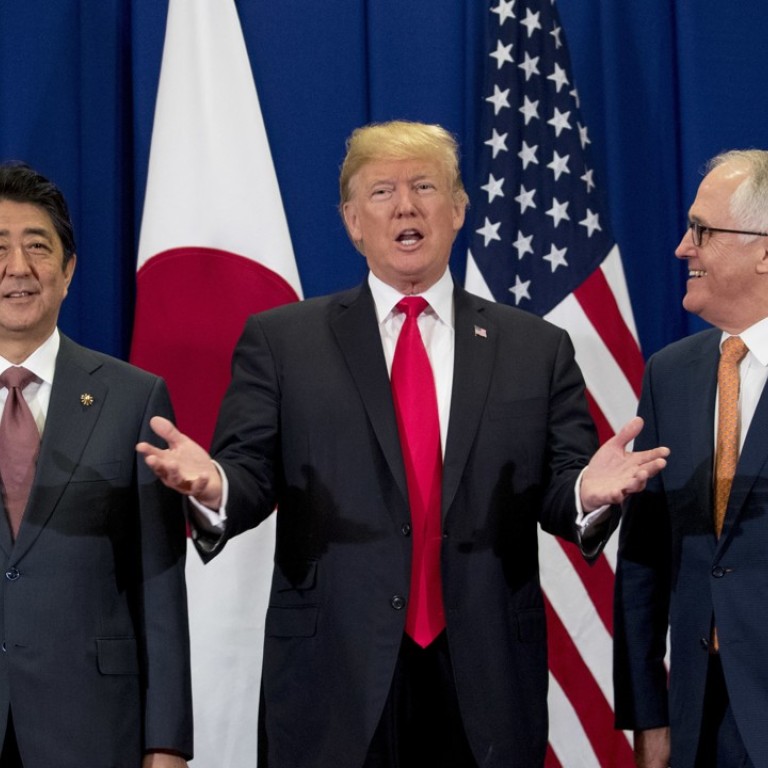
Australia turns its back on the new Asia with white paper
Instead of facing up to the reality of China, Canberra has stuck to the US line rather than work for improved ties with Beijing and back global organisations
China’s rise and US President Donald Trump’s turning his back on the world can make for a confusing time for America’s allies. Australia has shown that with its latest foreign policy white paper, which frankly lays out the dilemma for all to see. The nation relies on Chinese trade and investment for its economic well-being, but traditionally looks to the United States for its defence and security. That leaves either a strategy of facing up to reality or sticking to old ways and, unfortunately, the government of Australian Prime Minister Malcolm Turnbull has chosen the latter.
The word “uncertain” is used repeatedly in the paper. But there was nothing open to question about President Xi Jinping’s commitment at the 19th National Congress of the Communist Party to the multilateral system and a fair, shared community of interests. Trump has also been unequivocal about his desire to put his country first, which has already meant a withdrawal from the Trans-Pacific Partnership free-trade pact and the Paris climate change accord, and promised shake-ups to other trade and military agreements. The white paper plainly expresses the alarm of the Australian government and bureaucracy of a decades-old system of familiarity being eroded or even disappearing.
China and other nations in Asia have been poorly served by the existing world order and there is every need to let them have a greater say. Xi has pledged to make the system fairer. Rather than trying to shore up an outdated foreign policy, Australia should be trying to work for a more inclusive approach. While building improved ties and understanding with China, it can work for and encourage the strengthening of multilateral organisations such as the United Nations, G20 and the Asia Infrastructure Investment Bank.

